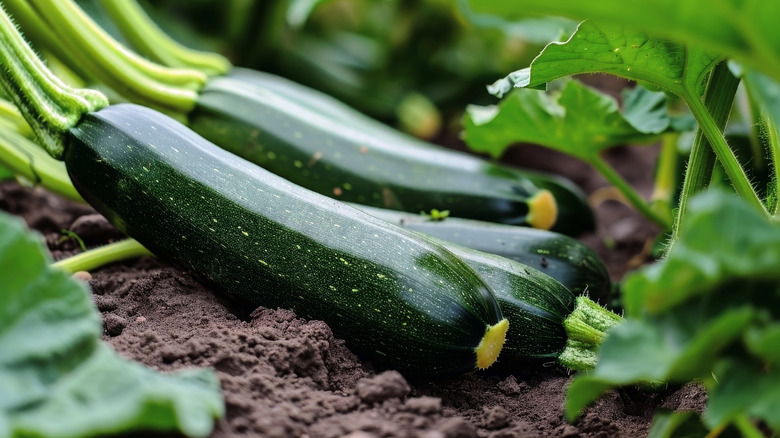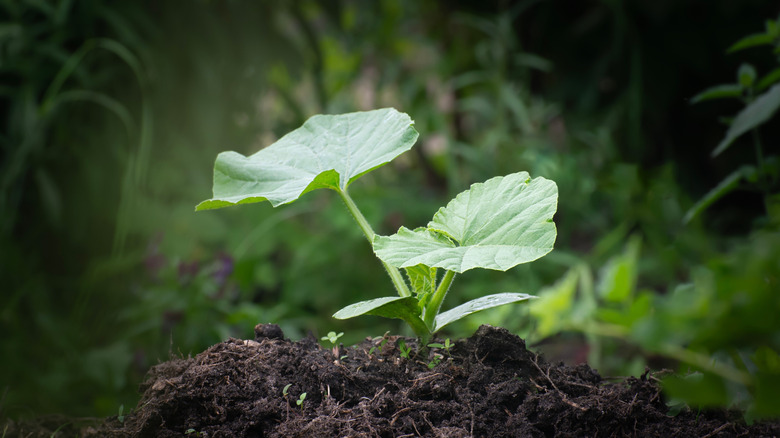The Best Time To Fertilize Zucchini Plants For Healthy Growth & An Abundant Harvest
Gardeners who have grown zucchini know that the difference between a bountiful harvest where you can barely keep up with the fruits of your labor and a bust year is properly fertilizing these nutrient-hungry plants. There are several mistakes people make when growing zucchini, but if there's one that you simply must avoid, it's not amending the soil before you plant. Starting with rich, well-drained soil is key to getting zucchini off to the right start. The best time to plant zucchini is after the last frost, so the best time to fertilize zucchini is in early spring, just before planting. Adding organic fertilizer to the soil before planting is critical to giving your plants a good start. In fact, this is key to getting healthy plants and minimizing the amount of fertilizing you will need to do throughout the rest of the season.
Preparing your soil is the first and most important step to growing your zucchini — but that doesn't mean you can put the fertilizer away for the rest of the summer. If starting from seed, there are two key times to feed even after you've prepared your soil. Lightly fertilize with a diluted mix when the seedlings emerge and have at least one true leaf. Then Fertilize again when the plants produce their first female blooms. If you buy starter plants, and place them in nutrient-rich soil, you can wait until they bloom to apply fertilizer. Giving zucchini a boost at these key times in the plant's development will help maximize growth and ensure an abundant harvest.
Give the soil, seedlings, and blooms a light boost
Getting the timing right is key to giving your zucchini plants a nutrient boost when they need it most, but they don't have complicated needs when it comes to the fertilizer itself. There's no need to seek out special products; most any all-purpose fruit and vegetable fertilizer should suffice. An organic 10-10-10 fertilizer with equal parts of nitrogen, potassium, and phosphorus will give your plants what they need to grow strong roots and healthy, green leaves. You can also use everything from fish emulsion to compost scraps. Coffee grounds are another kitchen ingredients you can use for thriving zucchini plants.
There are a few tips to make sure your fertilizing efforts don't backfire. For instance, if you're using a granular fertilizer, make sure it doesn't touch the plant and water it into the soil very well. If the granules touch your plant, they could end up burning it. You should also avoid applying too much nitrogen once the plants start fruiting. However, as long as you start with a nutrient-rich soil, your zucchini should be relatively easy to care for and need little fertilizing to bloom and produce tasty summer squash.

